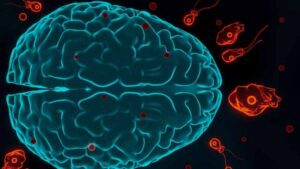
Getty Image
Irritable Bowel Syndrome (IBS) is a condition that affects a significant number of people, but it appears to impact women more often and in distinct ways. According to the National Institute for Health and Care Excellence (NICE), “the onset of IBS is most often between the ages of 20 and 30 years and IBS is twice as common in women as in men.” Despite its prevalence, many people do not seek medical attention, making it difficult to estimate the exact number of sufferers in the UK. NICE reports that around 10% of the population will experience IBS symptoms annually, with women being more commonly affected.
While IBS is generally a manageable condition, certain symptoms should not be ignored. Individuals are advised to consult their doctor if they experience sudden weight loss, diarrhea that wakes them during sleep, or the passing of blood. These could indicate more serious underlying issues. told by HealthLine.
IBS Symptoms in Women
The symptoms of IBS can manifest differently for women, especially due to hormonal fluctuations related to their menstrual cycle. The Gynecology and Obstetric Medical Group highlights that hormones play a role in symptom severity. They explain that “hormones fluctuate throughout your menstrual cycle, and this shift in hormones can intensify your IBS symptoms.” For many women, avoiding trigger foods and maintaining a routine of regular exercise can alleviate some of the worst symptoms.
Experts from Weill Cornell Medicine elaborate, stating that just before menstruation, “there’s a higher level of estrogen and progesterone that causes more bloating and constipation.” As hormone levels drop during menstruation, women tend to experience more diarrhea and increased sensitivity to pain.
Impact on Sex Lives
IBS can have a profound effect on a woman’s quality of life, including their sexual health. Nutritionist Rohini Bajekal noted, “IBS has a known impact on sexual dysfunction, ranging from a decreased sexual drive to painful intercourse. Women who suffer from IBS have more difficulty relaxing and enjoying sex and are more likely to avoid sex than men.” The discomfort and bloating that come with IBS can make physical intimacy challenging.
Other Common Symptoms
Both women and men may experience abdominal bloating, but it is more frequently reported among women, according to NICE. Other symptoms like back pain can occur as well, potentially caused by gas pressure or swollen bowels. report from NIH.
While nausea is less common, women with IBS may also experience this symptom, often due to indigestion or gastroesophageal reflux disease (GERD), which causes stomach acid to flow back into the esophagus.
Mental Health and IBS
Mental health challenges are common for women with IBS, who often report higher rates of anxiety and depression. Weill Cornell Medicine stated, “Women also are more psychologically affected by GI symptoms—they report more depression and anxiety, and a decreased quality of life.” A study from the University of Missouri School of Medicine found that 38% of IBS patients suffer from anxiety, while 27% struggle with depression.
Pregnancy and IBS
Pregnancy can further exacerbate IBS symptoms. Hormonal changes, particularly increased levels of progesterone, can slow digestion, leading to constipation. While every woman’s experience is different, some research suggests that pain associated with IBS flare-ups may be reduced during pregnancy.
In summary, IBS affects women in unique ways due to hormonal fluctuations and other factors. Understanding and managing symptoms can significantly improve quality of life.


